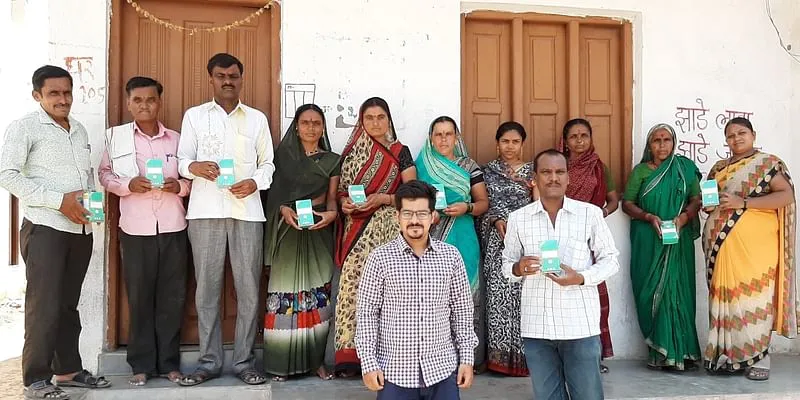From designing eco-friendly urinal bags to building resilient education systems: top SocialStories this week
This week, SocialStory brought out stories that discussed building an inclusive education action plan, as well as looked at a super app that aims to cater to all needs of the LGBTQIA+ community.
It is fascinating to see people coming up with innovative solutions for real-life problems. One such innovation is Siddhant Tawarawala's . Peeschute's pocket-size, paper-based unisex disposal urine bag solidifies human urine immediately to keep it leakproof and odourless.
Additionally, he also came up with a plug-and-play unisex urinal solution named ‘Peeschute Baksa’—which is a sustainable urinal model made of recycled plastic panels that will solidify human urine into compost. This compost in solidified form can be easily transferred anywhere and used as water retention for turning barren agricultural land into land capable of growing crops.
Read this and other inspiring stories this week on SocialStory.
This entrepreneur has developed an eco-friendly urine bag for just Rs 10
It is a common sight to see people urinating in public spaces like footpaths in India. The reasons range from lack of access to hygienic public toilets, public apathy, and lack of awareness.
Moreover, the non-availability of clean restrooms is a huge problem for those who travel frequently. Many people, especially women, are forced to hold urine for prolonged periods when outside, which can lead to urinary tract infections.
Siddhant Tawarawala, who used to travel frequently during college days, experienced the issue of non-availability of clean restrooms.
Siddhant decided to find a viable solution to this problem after attending a workshop for entrepreneurs during his third year of engineering. In 2019, he launched Peeschute, which is developing unisex paper-based disposable urine bags to help people relieve themselves.

Siddhant distributing Peeschute bags to the villagers
A super app for all things queer: Pride+
A 2021 survey across 27 countries by global market research firm Ipsos revealed that 80 percent of people identified as heterosexual, three percent as homosexual, four percent as bisexual, and one percent each as pansexual, asexual, and other. When it comes to India, in 2012, the government claimed there were 2.5 million gay people in the country, based on individuals who had self-declared to the Ministry of Health.
However, the stigma against the community continues and there are hardly any ‘safe spaces’ for LGBTQIA+ individuals.
Mumbai-based Aayush Agrawal—theatre-nerd, filmmaker, and state-level dance champion—is working to change this.
He began building a go-to-platform for queer people and started working on Pride+, a super app that would cater to everything anyone in the LGBTQIA+ community would need.

Building back better and equal resilient education systems
A recent news article that highlighted how 43,000 students in Odisha failed to turn up for the Class X exams shook the education system. Another fact-finding inquiry revealed that as schools reopened, students struggled with an acute teacher shortage and a lack of basic infrastructure.
Before the pandemic led to the country-wide closure of schools, India had six million out-of-school children. Now that number has risen to 10 million—particularly among the poorest and most vulnerable. We face a new reality today and schools and learning are set to acquire newer dimensions and modalities in the years to come.
India must act in five primary areas to overcome this crisis and build back better towards achieving Sustainable Development Goal 4 (ensure inclusive and equitable quality education and promote lifelong learning opportunities for all) by 2030. We need to plan and implement a COVID-19 education action plan for an inclusive, gender-responsive, adequately monitored well-coordinated education response.
From slums to reputed filmmaking institute

Shailesh Saini
Hailing from the slums of Andheri in Mumbai, Shailesh Saini has always dreamt of making it big in the world of photography and filmmaking.
However, like any child growing up in Mumbai’s slums, life was not easy for Shailesh. But, in spite of his family’s limited financial resources, he was always encouraged to follow his dreams of becoming a photographer and filmmaker.
His father, who runs a small flower shop from home, and his mother, a housewife, have always been very supportive of his dreams in spite of their humble background. His elder brother, after much difficulty, managed to secure a job as a clerk in a bank recently.
"Ever since I remember, I have been fond of cameras. I have always loved to capture people and their stories as well as photographing nature,” says the 20-year-old photography enthusiast.
Edited by Kanishk Singh







